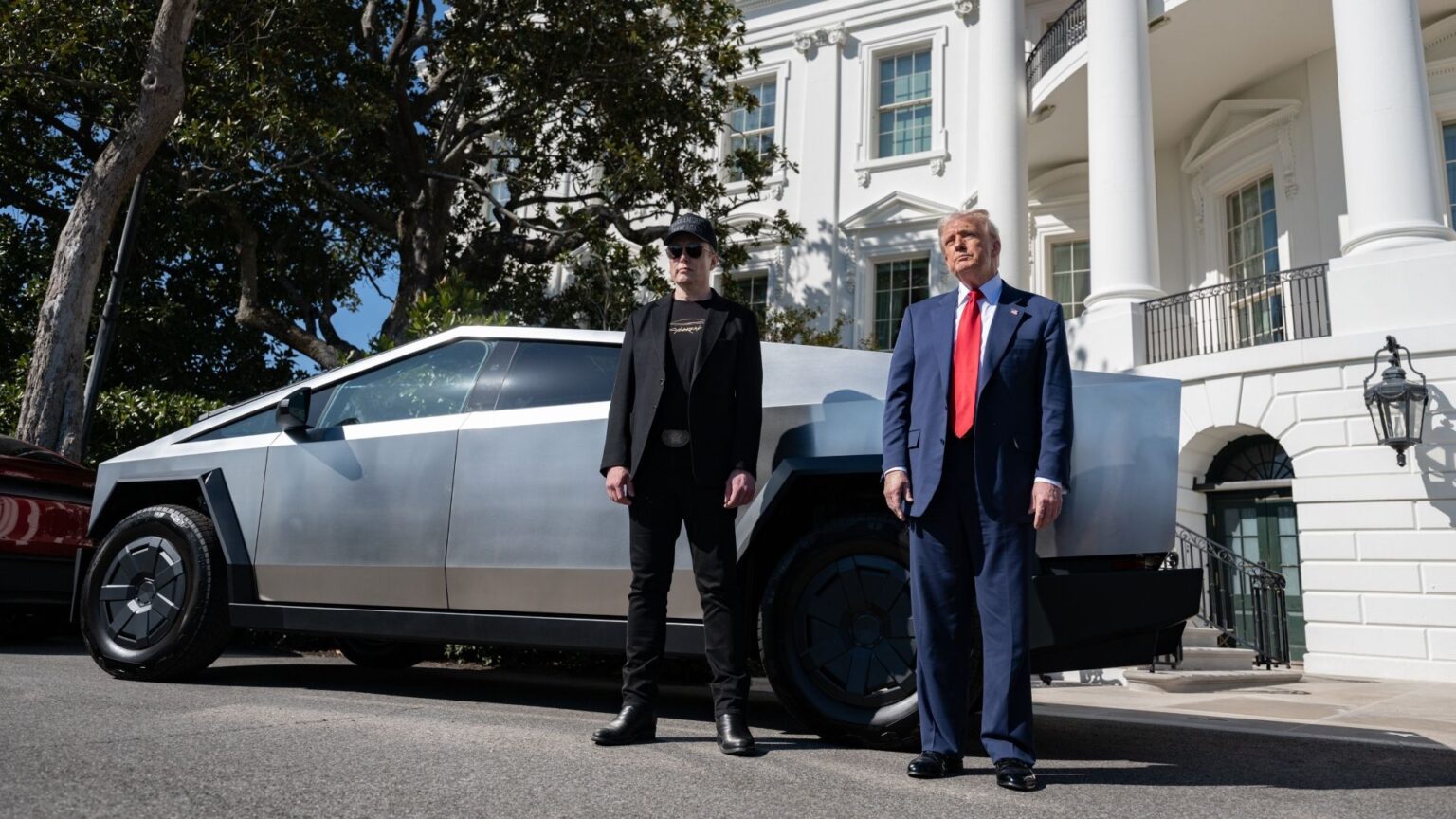The newly imposed 25 percent tariff on imported vehicles from essentially all countries outside of the U.S. has sent ripples through the automotive industry, affecting manufacturers, dealers, and consumers alike. This controversial move, which took effect yesterday, aims to encourage domestic production but has already led to pricing increases among automakers, including Volkswagen and Ford, two of the biggest players in the U.S. market.
Trump Tariffs Already Driving Up Car Prices
According to an internal memo obtained by Automotive News, VW is set to introduce an additional import fee on destination charges for vehicles built outside the U.S. and shipped into the country. The company has already stopped rail shipments of vehicles assembled in Mexico to the U.S., though other transportation methods remain operational. This decision highlights VW’s immediate concern about the financial impact of the tariffs and suggests that it is reevaluating its supply chain strategy. Additionally, Volkswagen has indicated that its U.S.-built models, including the Atlas, Atlas Cross Sport, and ID.4, may also be affected, though the specifics remain unclear.
While Ford and Volkswagen are employing different strategies to cope with the new policy, the long-term effects on pricing, production, and consumer behavior remain uncertain.
On the other hand, Ford has yet to implement any price increases in response to the tariffs. Instead, the company has introduced an “employee pricing for everyone” plan, making vehicles more affordable for U.S. consumers in the short term. We know that Jim Farley, Ford’s big boss, has publicly stated that he and other American Auto Company CEOs have had multiple meetings, urging Trump to reconsider his tariffs because they will hurt American companies and American buyers. This decision suggests that Ford anticipated the tariffs and prepared accordingly, possibly by stockpiling parts and vehicles ahead of time. However, the long-term impact of the tariffs on Ford remains uncertain, as the company will still have to pay duties on imported components and vehicles.
Volkswagen Makes The Majority of Its Cars Outside Of America
Currently, Volkswagen manufactures the Jetta, Taos, and Tiguan in Mexico for the U.S. market, while the ID. Buzz, Golf GTI, and Golf R are assembled in Europe. These vehicles now face significant price increases due to the tariffs, potentially making them less competitive in the market. Volkswagen is still in the process of figuring out its final pricing plan, with an official announcement expected by mid-April. VW has reassured dealers that it is prioritizing their interests, as well as those of consumers, while it assesses the situation.
Ford Is Fighting Against Trump Tariffs
Ford’s approach to handling the tariffs appears to be more calculated. The automaker and its dealers had already begun stockpiling parts in anticipation of the tariff implementation, providing them with some flexibility in the short term. Ford acknowledges that it will have to pay tariffs on imported vehicles and components, but is actively lobbying the Trump administration for exemptions on lower-cost parts sourced from abroad. If successful, this could mitigate some of the financial burden and help keep vehicle prices stable for consumers.
We will see higher car prices as a result, but price hikes won’t stop there. The trade war has begun…
The tariffs’ broader implications extend beyond these two companies. Increased costs will likely be passed down to consumers, potentially leading to higher prices for foreign-made vehicles and parts. This could shift purchasing habits, pushing consumers toward domestically produced models or encouraging automakers to move more production to the U.S. However, relocating production is not an overnight process, and automakers will have to navigate supply chain challenges, labor costs, and logistical hurdles in the coming months. It should need no explanation to understand how difficult and expensive a process it would be for a company like VW to move more production to the U.S. All of that costs enormous time and money, which corporations, of course, pass down to the buyers.
TopSpeed’s Take
The Trump tariff is already influencing the automotive landscape in significant ways. While Ford and Volkswagen are employing different strategies to cope with the new policy, the long-term effects on pricing, production, and consumer behavior remain uncertain. Automakers have to carefully balance costs, supply chain logistics, and market competitiveness as they adapt to this new regulatory environment. It’s quite a delicate market that has just had a mighty big wrench thrown in the works.
Even more importantly, many of the Trump tariffs are aimed at America’s allies, raising bigger questions about how trustworthy our country is to the rest of the world. We will see higher car prices as a result, but price hikes won’t stop there. The trade war has begun, and Trump fired the first shot into an otherwise peaceful night.
Source: Ford Authority
Read the full article here


